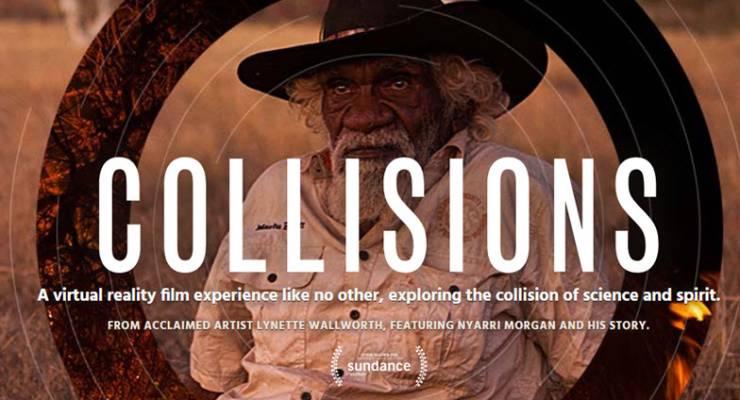
Fifty years ago this week, Bonnie and Clyde charged into American cinemas and rewrote the rules on screen violence. The classic 1967 on-the-run crime drama is best known for its notorious finale, during which the titular characters (played by Faye Dunaway and Warren Beatty) are pummeled with gunfire, their beautiful, bullet-sprayed bodies tossed and turned like a salad.
Combining a noir-esque, crime-doesn’t-pay premise with European sensibilities, Bonnie and Clyde was something nobody had seen before: lyrical, shocking, and with a deep, era-defining scepticism towards timeworn institutions, such as the banks. The year after the film’s release the Motion Picture Association of America introduced its classification system, which is still in effect today.
But more than that, Bonnie and Clyde was the first film in what became known as New Hollywood, a movement that wrested control of the studio system out of the ageing hands of tinsel town’s founding fathers. It ushered in some of the finest and most influential contemporary filmmakers including Martin Scorsese, Stanley Kubrick, Francis Ford Coppola and Steven Spielberg. It is no exaggeration to say that Bonnie and Clyde played a part in changing the face of cinema.
The film’s anniversary arrives at a sensitive time for the American movie industry. It is currently experiencing a so-called summer of hell, in front of a background of widespread paranoia, with speculation that the kind of disruption that hit the music and publishing industries may cause the end of Hollywood as we know it. We have certainly seen the demise of the mid-budget picture, and an unprecedented supply of dumb blockbusters and unoriginal franchises.
A commentary piece published on The Guardian last Friday, entitled “Why Hollywood needs another Bonnie and Clyde moment“, raised the question of whether we need another circuit breaking film (or films) to open the door to a new era of talent and potential.
I’m going to go out on a limb here and suggest that moment has already arrived, and we are currently in the thick of it. You might not have noticed, because it took place in a different reality. One of the virtual kind.
Following decades of speculation, the long-gestating medium of virtual reality finally became available on the mass market in 2016. It is only now that we are beginning to see, from a filmmaking perspective, the first truly exciting uses of the format.
A lot has changed since I picked up my Gear VR headset a year and a half ago. The catalogue of content back then was almost entirely comprised of gimmicky video games, fixed camera 360-degree videos, and theme park style experiences such as journeys down rivers and rides on roller coasters.
Last weekend, during an epic VR binge watching session, I jumped inside Donald Trump’s head. I met Michelle Obama. I spent time with a Syrian refugee in Jordan, who became a paraplegic after being shot in the back by a sniper. I met an African-Australian man who hangs out in front of Flinders Street station, believing himself to be a modern-day prophet.
I followed the story of a survivor of child trafficking. I learnt about how how the Iraqi city of Falluja was retaken from Islamic State. I watched a series of short, sumptuously smoky neo-noir films starring the likes of Don Cheadle and Casey Affleck. I even sat through a dodgy Star Wars rip-off called Wookie on Vacation, which, at one minute’s length, outstayed its welcome.
A lot of the content isn’t great, but there are magnificent diamonds in the rough. Some filmmakers have achieved exhilarating results by applying traditional elements of film grammar to the new medium, such as director Lynette Wallworth with her gobsmacking (and recently Emmy-nominated) documentary Collisions. Wallworth recreates an Aboriginal man’s first contact with Western culture, which was witnessing a nuclear bomb detonated in remote Western Australian desert.
Others have taken a reinvent-from-the-ground-up philosophy. Director Alex Smith’s VR accompaniment (though it works fine as a stand-alone film) to the British documentary Notes on Blindness is a beautiful and profound experience, recounting a blind person’s perception of a public park and a concert recital. Along with Collisions, it may come to be regarded as one of the early, pioneering films of virtual reality.
Other stuff is pure escapism. I’m hooked, for example, on a schlocky action miniseries called Invisible, produced by Doug Liman — the American director whose films include The Bourne Identity, Go and Edge of Tomorrow. More heavy hitters are making (or have recently made) the journey into VR, including Steven Spielberg, Ridley Scott, Kathryn Bigelow, Jon Favreau and Alejandro Gonzalez Inarritu.
In a day and age when there are more distractions than ever before, the time feels right for a new and totally immersive art form to block out the endless stimulus of the world around us. Good luck looking at your mobile phone in virtual reality.
To say it is an interesting period for the burgeoning medium is to put it lightly. There is great excitement in that digitally rendered, virtual air. It feels like, at any day, a game-changing production might arrive that could do for VR what Pokemon Go did for augmented reality, or what Avatar did for 3D cinema. The individual, breakout virtual reality film to connect the platform with a huge mainstream audience may be yet to come, but its Bonnie and Clyde moment has very much begun.








I’ll bet it’s the porn industry that will set the benchmark.
I think that you are correct.
Porn decided the VHS/Beta war but the Intertubes holed that garbage barge below the water line.
I believe that there is now anime porn which seems to be regression to dirty postcards.
I used to read a lot of Science Fiction books when I was in my late teens and early 20s around 40/50 years ago and real life is about to follow these books. Virtual reality was the go then and I thihghtnit was magic. There were “cinemas” where people paid to put the headset on and go and do whatever they wanted to. Go on holiday, play sport, do anything they wanted to and go anywhere they wanted to, even porn. It seems that we are now actually in the early stages of making these sci fi things real (?). Next thing old cinemas will be brought out of mothballs new, hi tech ones will be built and if we want to go skiing, or just laze on the beach we just put the headsets on, pay our fee and go!!!!!! One of the great things about it is that if we are disabled or just poor we just pay the fee and we can do the things we always wanted to do, be the characters we dreamed about and go where we always wanted to go. Brilliant. Three cheers for VR.
PS. In the books some people got addicted and dreadful things happened!!!!!